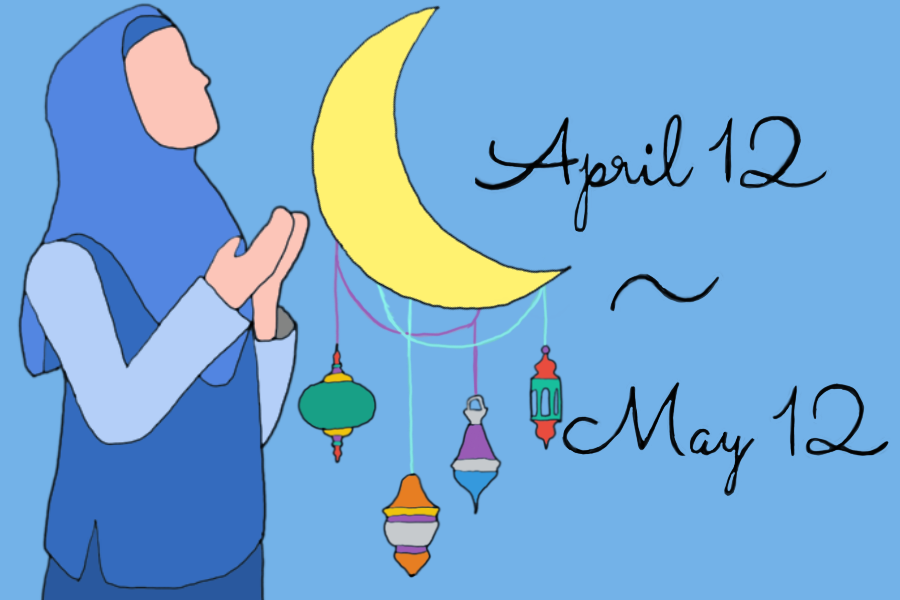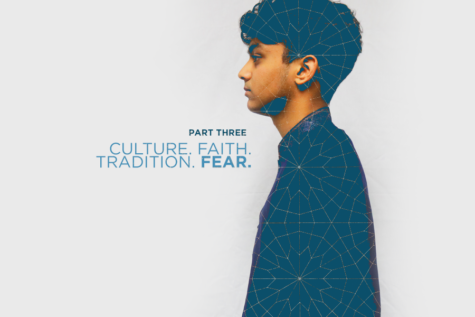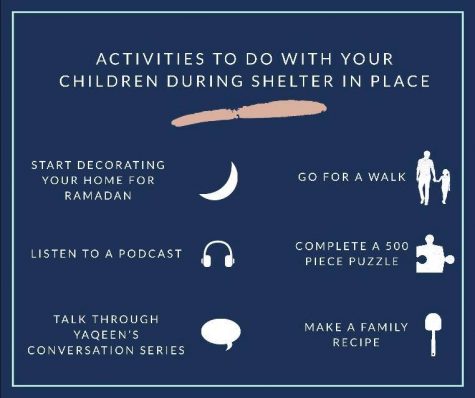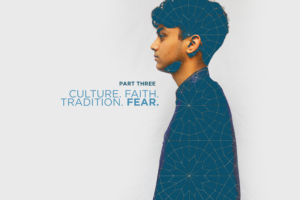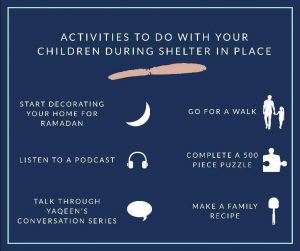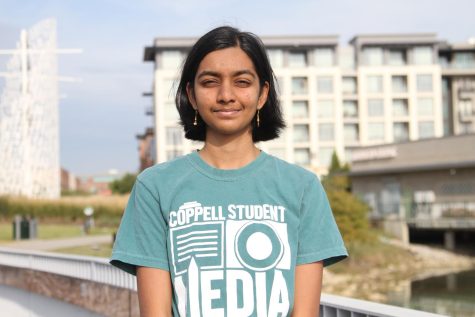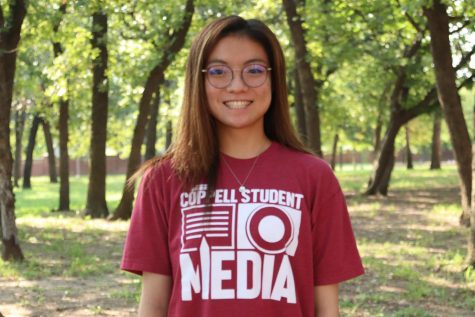Muslims celebrating Ramadan, Eid al-Fitr despite social distancing restrictions
Ramadan is the ninth month in the Islamic calendar, which is a lunar calendar based on the cycles of the moon. This year, Ramadan is celebrated from April 12 to May 12.
May 14, 2021
Ramadan, celebrated from April 12 to May 12 this year, is usually a time to spend with friends and family. For Muslims, the atmosphere is one of community, exchanging gifts and praying together in the evenings at mosques.
The Islamic Center of Coppell reopened in March after being closed due to the coronavirus pandemic. According to Islamic Center of Coppell Imam Abdullah Oduro, this year the atmosphere of Ramadan has been noticeably different.
Normally 20 to 25 people can pray in a row at the Islamic Center of Coppell. After social distancing regulations only 5 to 10 can pray per row. This decreases the amount of people who can attend by half or less than half. According to Oduro, for tarawih, which is a congregational prayer said during Ramadan, two different congregations were made in order to facilitate for the attendees. Despite this, the Islamic Center of Coppell being open is a welcome change from Ramadan last year.
“Now that the mosque is open there is a sense of community, there is a sense of continuity,” Oduro said. “People are seeing each other, appreciating each other, celebrating with each other, and visiting each other. So with that door being open, you maintain the regulations, the social distancing and things of that nature to the best of your ability. Celebrating is going to be much better than last year.”
Ramadan is a time for Muslims to build a relationship with God, which means many Muslims pray for longer or visit mosques more frequently than usual. During Ramadan, the worst of the shaitan, or devil, is locked up so that Muslims can focus on ibaadat, or worship and prayer. It is a time where Muslims can atone for their previous sins by praying and fasting, although those are not the main parts of the holiday.
“You’re cleansing your soul,” Coppell High School junior Maliha Hai said. “It’s to be more purified if you did bad deeds. You’re asking God to forgive those for you, and it’s a way of celebrating. You’re one step closer to God, you’re cleaning yourself out and you’re following one of the main practices of Islam.”
During Ramadan, it is required to fast from Fajr Adhan, a dawn prayer, to Maghrib Adhan, a sunset prayer, or from sunrise to sunset. Muslims eat only two meals during this time: Suhoor, which is before sunrise, and Iftar, which is after sunset. Fasting during Ramadan is one of the five pillars of Islam.
Fasting is a reminder that food is a blessing from God and that not everyone is lucky enough to have food and water. The practice also decreases distractions to focus on building a relationship with God.
People who are ill, pregnant, nursing, menstruating or traveling do not need to fast during Ramadan, along with young children and the elderly. They can make up for days they do not fast by fasting during Shawwal, the 10th month of the Islamic calendar, or feed a poor person for every day they miss if unable to fast permanently.
“Someone that has COVID does not have to fast.” Oduro said. “It’s just another illness that would cause someone to be exempt from fasting. Visiting each other has been a concern as well, especially for the elderly. The elderly still do not attend the mosque because of COVID. The probability of them being susceptible to COVID is much higher than the younger generations, right. But, the vaccines bring hope to the community. “
Eid al-Fitr marks the end of Ramadan and is celebrated on May 13 this year. It is treated as a big celebration, a community event in which Muslims invite friends and family for a feast and gifts are exchanged.
“My favorite part of Ramadan is going to the mosque,” Nasir said. “It’s really peaceful because you’re usually busy with daily life, especially school stuff. There’s usually not much time to go to the mosque. During Ramadan, we go to the mosque [more often]. When we go there, there’s the whole community, and the prayer is very special for us.”
Follow Iniya (@iniya_v) and @CHSCampusNews on Twitter.



